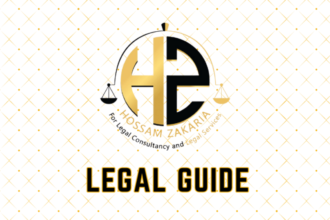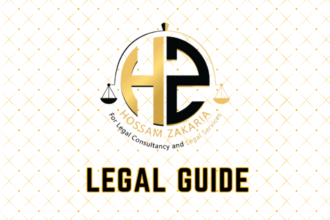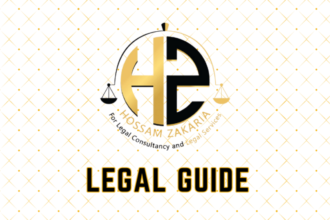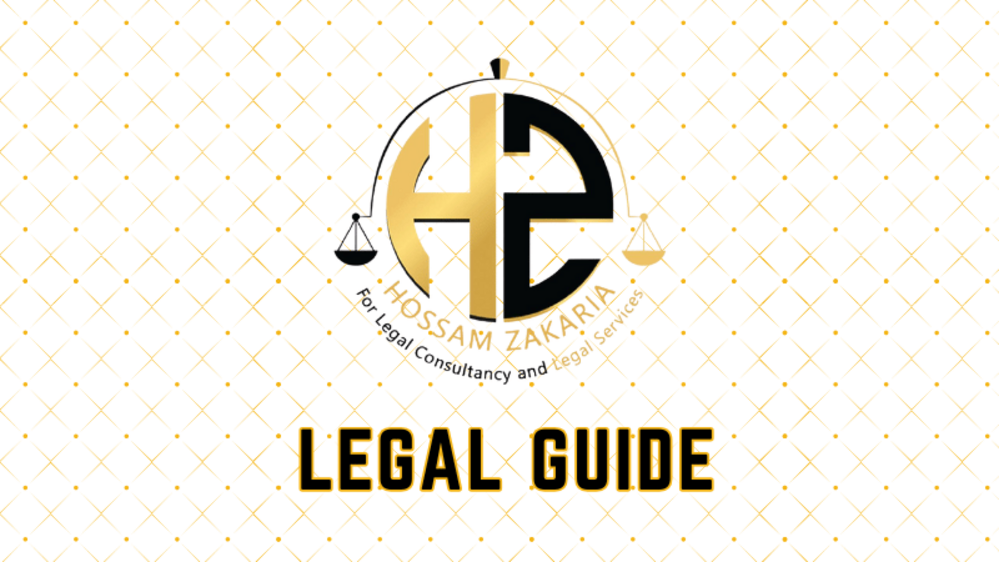Introduction: Saudi Arabia Fintech Licensing and Crowdfunding – A New Era for UAE Businesses
The ever-deepening economic ties between the United Arab Emirates (UAE) and Saudi Arabia have transformed the regulatory priorities and investment strategies for businesses operating across the GCC. Within this dynamic landscape, Saudi Arabia’s latest updates to its crowdfunding and fintech licensing frameworks are of particular interest to UAE-based enterprises. As Saudi regulators expand fintech access, tighten oversight, and align more closely with global compliance standards, UAE businesses exploring, partnering, or expanding into the Kingdom face a new legal reality—one that must be navigated with strategic finesse and up-to-date expertise.
For legal advisors, C-suite leaders, and compliance managers in the UAE, understanding how the Saudi Capital Market Authority (CMA) and Saudi Central Bank (SAMA) are reforming crowdfunding and fintech licensing is not just a matter of knowledge, but of risk prevention and regulatory agility. This article provides a comprehensive, consultancy-grade analysis tailored to UAE organizations: what has changed, why it matters, and what must be done to comply and thrive. We reference official regulations, examine practical implications, and equip clients with actionable compliance strategies, ensuring that your Saudi expansion remains robust and future-proof.
Table of Contents
- Overview: Latest Saudi Crowdfunding and Fintech Regulations
- The UAE-Saudi Cross-Border Business Context
- Detailed Breakdown of New Provisions
- Comparative Analysis: Previous vs Current Legal Requirements
- Impacts on UAE Businesses Operating in or with Saudi Entities
- Risks of Non-Compliance and Compliance Strategies
- Case Studies and Practical Examples
- Legal Foresight and Best Practice Recommendations
- Conclusion: Navigating Tomorrow’s Legal Landscape
Overview: Latest Saudi Crowdfunding and Fintech Regulations
Saudi Arabia’s Regulatory Bodies: CMA and SAMA
Saudi Arabia’s fintech ecosystem is jointly supervised by two key authorities:
- Saudi Capital Market Authority (CMA): Oversees equity and investment crowdfunding, peer-to-peer platforms, and securities-related fintech activity.
- Saudi Central Bank (SAMA): Supervises payment services, consumer finance, and other financial technology providers.
As of 2023 and reinforced in 2024, both authorities have revised licensing structures, compliance requirements, and sandbox regimes to foster innovation while minimizing systemic risks. Notably:
- The Crowdfunding Regulations of 2023 (CMA Resolution 9-29-2023) set new eligibility, disclosure, and operational mandates for platforms soliciting funds from Saudi investors.
- The Fintech Activity Licensing Framework (SAMA Circular 2024/05) introduces tiered licensing, data localization demands, and direct accountability for fintech operators.
Official regulatory texts are available on the CMA website and SAMA portal. UAE businesses offering fintech services, collaborating with Saudi partners, or acting as technology providers must understand these laws to ensure lawful operation and partnership viability.
The UAE-Saudi Cross-Border Business Context
Why Should UAE Companies Care?
Saudi Arabia is the largest market for UAE investors, SMEs, and fintech entrepreneurs seeking regional expansion. The recent legal reforms are not isolated—they directly impact cross-border:
- FinTech startups: Operating platforms in both UAE and Saudi Arabia, whether remotely or via Saudi subsidiaries.
- Venture capital and crowdfunding stakeholders: Participating in Saudi campaigns or funding vehicles.
- Consultancies and technology service providers: Enabling or facilitating Saudi fintech infrastructure.
Non-compliance could result in revoked licenses, partner liability, blocked transactions, reputational damage, and even sanctions on local directors or holding companies. The bilateral economic corridor, governed under frameworks like the UAE-Saudi Coordination Council, places a premium on regulatory harmonization—making real-time legal compliance both a business and diplomatic imperative.
Detailed Breakdown of New Provisions
CMA Crowdfunding Regulations (CMA Resolution 9-29-2023)
The latest rules reflect lessons learned from early regulatory sandboxes and international benchmarks. Key updates include:
- Platform Operator Licensing: Both Saudi and foreign-based operators (including those with UAE parent companies) must obtain a CMA license, with fit-and-proper vetting for shareholders and directors.
- Investor Category Restrictions: Platforms must classify investors (e.g., retail, sophisticated, institutional) and enforce caps on investment volumes and risk exposure.
- Disclosure and Transparency: Enhanced requirements for full disclosure of project risks, sponsor backgrounds, and fundraising goals.
- Escrow and Custody Protocols: Mandated use of regulated escrow agents for fund custody—cross-border operators must adhere to Saudi-approved banking protocols.
- Reporting and Record-Keeping: Obligations for regular reporting to CMA, with technology-enabled audit trails (data must be accessible on Saudi servers).
SAMA Fintech Activity Licensing Circular (2024/05)
SAMA’s new circular introduces:
- Tiered Licensing: Different licensing prerequisites for payment service providers, open banking platforms, and micro-lending apps, each with bespoke capital and technological standards.
- Local Data Residency: Fintech entities must ensure customer data is stored within Saudi Arabia—outsourcing to UAE or global datacenters raises compliance red flags unless SAMA-approved.
- Anti-Money Laundering (AML) Integration: Platforms must enforce Saudi-specific AML protocols, with direct reporting obligations to Saudi authorities.
- Digital Onboarding Standards: Stricter customer verification (e-KYC) and cybersecurity controls.
These provisions are further detailed in the SAMA Fintech Regulations Portal. UAE-headquartered fintechs cannot assume that compliance with UAE Central Bank or ADGM guidelines suffices for Saudi operations.
Comparative Analysis: Previous vs Current Legal Requirements
For clarity, the following table summarizes key differences between the older regulatory regime (pre-2023) and the current laws impacting UAE-linked crowdfunding operators and fintechs:
| Aspect | Pre-2023 Regime | 2023–2024 Updated Regime |
|---|---|---|
| Licensing of Foreign Operators | Permissive, often possible via local partners or sandboxes | Mandatory full CMA/SAMA licensing, stricter vetting of foreign entities |
| Investor Protection | Limited investor categorization, basic caps | Detailed investor profiling, sophisticated investor caps, retail risk warnings |
| Data Residency | No explicit requirement; data could be offshore | Mandatory local Saudi data residency for core customer data |
| AML & KYC Practices | Aligned with general GCC AML norms | Specific Saudi AML directives and reporting protocols |
| Escrow & Fund Custody | Flexible, project-driven arrangements allowed | Escrow/custody via Saudi-licensed institutions only |
Visual suggestion: Compliance Checklist infographic illustrating key changes between old and new rules for swift executive reference.
Impacts on UAE Businesses Operating in or with Saudi Entities
Legal and Commercial Implications
For UAE-based financial technology firms or platforms, these updates create new obligations and strategic considerations:
- Licensing Burden: UAE operators must secure Saudi-specific licenses—mere UAE registration or Dubai International Financial Centre (DIFC) authorization is insufficient.
- Corporate Structuring: Joint ventures, branches, or wholly-owned Saudi subsidiaries may be required. Decision-making and directorship must reflect local compliance accountability.
- Data Infrastructure: Investment in local Saudi data centers or vetted third-party hosting becomes essential to satisfy data residency mandates.
- Partnership Risks: UAE companies serving as technical or process outsource partners to Saudi startups must ensure that their systems, staff, and sub-processing chains adhere to Saudi rules.
- Contractual Terms: Cross-border agreements should specify regulatory allocations and data localization measures, with robust indemnity and audit mechanisms.
UAE enterprises planning Saudi market entry or joint initiatives must conduct a detailed legal gap analysis before launch, with all documents and operational practices aligned to Saudi frameworks.
Risks of Non-Compliance and Compliance Strategies
Risks of Non-Compliance
| Risk | Potential Consequence |
|---|---|
| Operating Without License | Immediate cease orders, fines up to SAR 10 million, blacklisting |
| Data Residency Breach | Service suspension, legal action against directors, reputational impact |
| AML or KYC Failures | Regulatory reporting, customer freeze, criminal liability |
| Improper Investor Disclosures | Investor lawsuits, regulatory penalties, mandate for return of funds |
| Non-Saudi Platform Partnerships | Retroactive scrutiny, forced termination of partnerships |
Visual suggestion: Penalty Comparison Chart – a side-by-side infographic showing fines and enforcement comparisons between the UAE and Saudi Arabia for key compliance breaches.
Compliance Strategies for UAE Businesses
- Early Engagement: Initiate direct dialogue with CMA/SAMA before entering partnerships or launching products. Regulators increasingly expect pre-market consultations.
- Legal Gap Analysis: Retain cross-border legal experts to audit existing processes against Saudi requirements, including IT, HR, and investor relations.
- Data Localization Roadmap: Work with IT architects to migrate relevant data systems or adopt hybrid models that maintain both UAE and Saudi regulatory compliance.
- Contractual Risk Allocation: Update agreements with local partners to clarify operational roles, regulatory reporting, liability, and data control responsibilities.
- Ongoing Regulatory Monitoring: Assign dedicated staff or retain advisors for continuous legislative updates from Saudi authorities—rules are evolving rapidly and are subject to periodic circulars.
Case Studies and Practical Examples
Case Study 1: UAE Fintech Entering Saudi Crowdfunding Market
Situation: A Dubai-based FinTech platform, previously operating under DIFC regulations, seeks to launch a peer-to-peer crowdfunding portal for Saudi SMEs.
Legal Issues: Despite UAE compliance, the company must secure a CMA license, implement Saudi-specific e-KYC, and invest in localized data centers. They must restructure investor contracts and update user disclosures in both Arabic and English, as required by Saudi law.
Insight: Success hinges on early legal advisory engagement and a dual compliance program addressing both UAE and Saudi regulatory frameworks.
Case Study 2: Technology Outsource Agreements
Situation: An Abu Dhabi-based IT consultancy provides white-labeled crowdfunding software to a Saudi-licensed platform.
Legal Issues: Even absent direct Saudi operations, the UAE supplier is contractually obligated to support secure data residency, implement Saudi AML triggers, and submit to potential Saudi audits on technology controls.
Insight: Well-drafted SaaS agreements must include precise SLA metrics, Saudi-specific data handling provisions, and a roadmap for regulatory inquiry response.
Hypothetical Example: Penalties for Non-Compliance
Situation: A UAE fintech, serving Saudi retail investors without a local license, is flagged by SAMA and levied a multi-million SAR penalty, its directors facing personal asset freezes.
Insight: Compliance failures in Saudi Arabia can not only jeopardize the business’s reputation and commercial partnerships but also trigger regulatory action within the UAE under bilateral cooperation agreements.
Legal Foresight and Best Practice Recommendations
Regulatory Trends for 2025 and Beyond
Saudi regulators are expected to further harmonize with international standards, particularly the Financial Action Task Force (FATF) for AML, and the EU’s directives on payment and crowdfunding services. UAE companies should anticipate:
- Integration of ESG (Environmental, Social, and Governance) reporting into fintech compliance frameworks.
- Increased scrutiny of cross-border digital identification and onboarding processes.
- Greater cooperation between SAMA, CMA, and the UAE Central Bank for coordinated enforcement on data breaches and investor protection violations.
- Potential for streamlined licensing mechanisms for GCC-wide activity under economic integration initiatives.
Visual suggestion: Process Flow Diagram – illustrating the end-to-end compliance cycle for cross-border fintech operations (from gap analysis to post-market monitoring).
Best Practice Recommendations for UAE Businesses
- Engage qualified Saudi counsel before product launch; UAE advice alone is insufficient.
- Draft robust compliance and crisis response playbooks, tailored to Saudi-specific triggers.
- Establish joint-vendor risk registers, ensuring that technology, HR, and finance inputs comply with both jurisdictions.
- Benchmark all investor communications against Saudi transparency and language mandates.
- Proactively monitor for regulatory updates via CMA/SAMA portals and consider joining cross-border industry associations for shared intelligence.
Conclusion: Navigating Tomorrow’s Legal Landscape
Saudi Arabia’s new regulatory regime for crowdfunding and fintech activity marks a pivotal shift for UAE businesses. No longer is regional expansion a matter of regulatory duplication—UAE organizations must now internalize and operationalize Saudi-specific legal standards across the entire business lifecycle. Those who adapt proactively, leveraging credible legal expertise and robust compliance architectures, will not only shield themselves from enforcement risks but also build trust with Saudi partners, investors, and regulators.
As the cross-border digital economy flourishes, and as both UAE and Saudi Arabia seek global investment, legal compliance will remain a source of both risk and competitive advantage. The consultancy’s best advice: invest early in legal gap analysis, prioritize local expertise, and treat compliance as an ongoing strategic function. In a landscape where regulatory expectations are evolving, future-proofing your business today is a hallmark of true leadership in the UAE-Saudi corridor.



